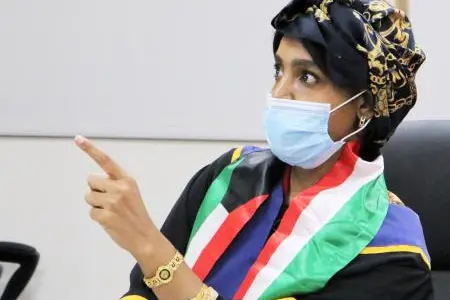PHOTO
Manama-AGU: As part of obtaining a PhD degree requirement in Innovation & Technology Management from the College of Graduate Studies, Souaa Abdullah Atallah, a researcher in the Innovation & Technology Management Department at the Arabian Gulf University (AGU), used the fuzzy logic to evaluate small and medium-sized enterprises (SMEs) innovation in the fitness sector of Kuwait and Bahrain.
During the discussion, the researcher said: “Measuring (SMEs) innovation rate is a crucial element in economic growth management. GCC countries seek to transform their economies into both knowledge-based economies (KBE) and service-based economies. Due to the changes in the GCC lifestyle, the SMEs are requested to provide more services especially in sport and fitness field.”
The research aimed to assess the SMEs’ level of innovation in providing fitness-related services in Bahrain and Kuwait, between 2015 and 2019. In addition to measuring their performance in terms of innovation development.
Furthermore, the research purposed to discover an innovation measure through a structured methodology. The research importance emerges from SMEs’ distinctive role in forecasting economic growth and offering new jobs.
The research revolved around the SMEs’ role in creating employment opportunities, enhancing global competitiveness, and economic diversification. The study methodology used a qualitative method to present, monitor, and examine the innovations of 20 different SMEs offering fitness-related services in both Bahrain and Kuwait. It also applied the Fuzzy logic to measure SMEs innovation rates.
The researcher, Attallah, collected the needed data through open-source data, questionnaires, as well as senior management members of fitness service providers in Bahrain and Kuwait interviews.
The research concludes a similarity in Bahrain and Kuwait SMEs innovation factors related to innovation performance management. It shows that Kuwait SMEs focuses on fitness sector products. Moreover, she recognised that both countries were managing Process Innovation in the same pattern. She also recommended applying the same methodology on all commercial and industrial sectors of the GCC countries to formulate new strategies and policies.
The discussion committee was formed of Innovation & Technology Management Department, Computer Engineering Professor at AGU, Dr Rustom Mamlook as Chief Supervisor, Water and Environment Professor, Dr Odeh Al Jayyousi, as Associate Supervisor, and Management Information System Professor, Dr Fairouz Aldhmour, as Internal Examiner, As well as, Operations and Technology Management Professor, at King Fahd University of Petroleum & Minerals, Dr Aymen Kayal, as External examiner.
-Ends-
© Press Release 2020
Disclaimer: The contents of this press release was provided from an external third party provider. This website is not responsible for, and does not control, such external content. This content is provided on an “as is” and “as available” basis and has not been edited in any way. Neither this website nor our affiliates guarantee the accuracy of or endorse the views or opinions expressed in this press release.
The press release is provided for informational purposes only. The content does not provide tax, legal or investment advice or opinion regarding the suitability, value or profitability of any particular security, portfolio or investment strategy. Neither this website nor our affiliates shall be liable for any errors or inaccuracies in the content, or for any actions taken by you in reliance thereon. You expressly agree that your use of the information within this article is at your sole risk.
To the fullest extent permitted by applicable law, this website, its parent company, its subsidiaries, its affiliates and the respective shareholders, directors, officers, employees, agents, advertisers, content providers and licensors will not be liable (jointly or severally) to you for any direct, indirect, consequential, special, incidental, punitive or exemplary damages, including without limitation, lost profits, lost savings and lost revenues, whether in negligence, tort, contract or any other theory of liability, even if the parties have been advised of the possibility or could have foreseen any such damages.




















